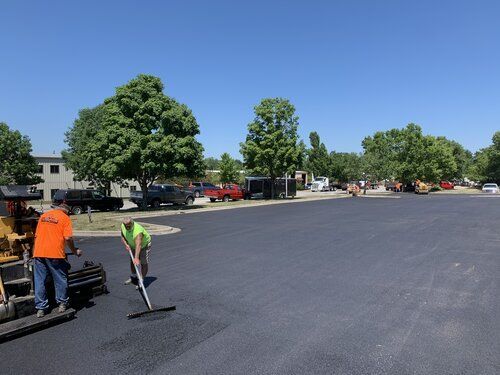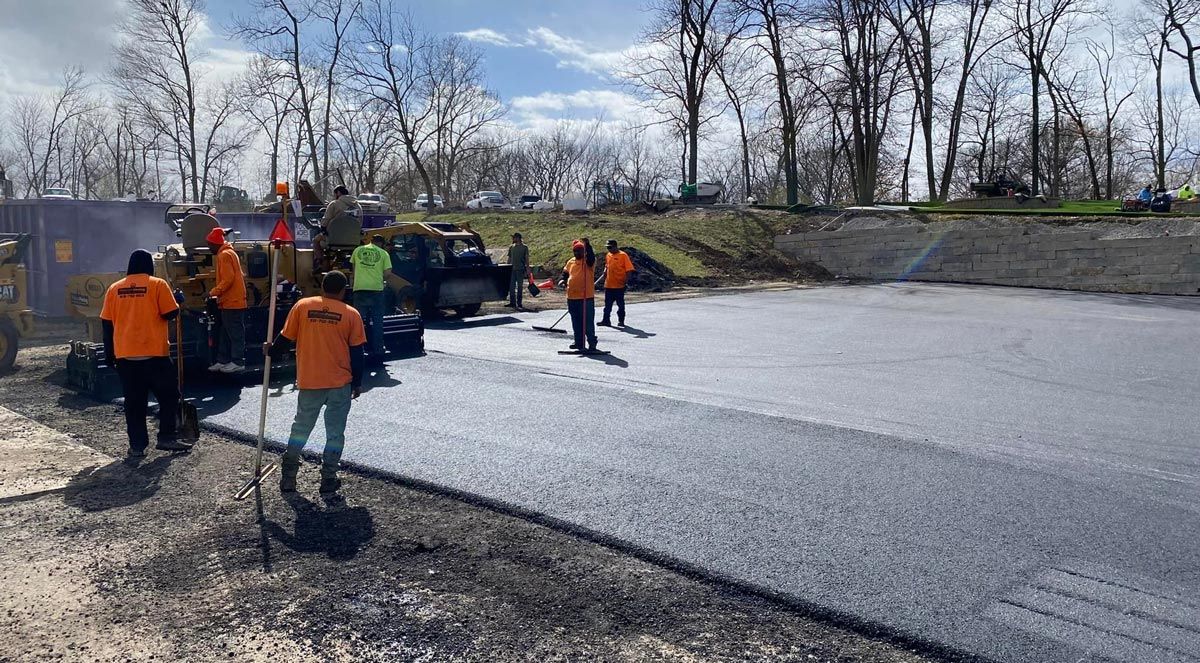Introduction
When it comes to managing a commercial property, the importance of a well-maintained parking lot can’t be overstated. Parking lot striping is an essential component of this maintenance, ensuring that your space is safe, organized, and compliant with regulations such as ADA requirements. But one question often lingers in the minds of property managers and business owners alike: How often should you restripe your commercial parking lot?


In this comprehensive guide, we’ll dive deep into everything you need to know about parking lot striping. From understanding the factors that influence restriping frequency to the benefits of hiring professional asphalt companies, we'll cover it all.
The Importance of Parking Lot Striping
What is Parking Lot Striping?
Parking lot striping refers to the process of painting lines and symbols on a parking surface to designate parking spaces, walkways, fire lanes, and other critical areas. This service is crucial for maintaining order and safety in busy commercial environments.
Why Is It Essential?
Safety: Clearly marked lines help prevent accidents and ensure that vehicles are parked correctly. Compliance: ADA-compliant parking lot striping is necessary for accessibility. Aesthetic Appeal: Fresh stripes make a business look more appealing to customers. Efficiency: Properly marked spaces maximize parking efficiency.How Often Should You Restripe Your Commercial Parking Lot?
Factors Influencing Restriping Frequency
The frequency of restriping a commercial parking lot can vary based on several factors:
Traffic Volume: High-traffic areas may require more frequent restriping. Weather Conditions: Harsh weather can wear down paint faster. Type of Paint Used: Different materials have varying durability. Existing Damage: Cracks or potholes may necessitate immediate attention.General Guidelines for Restriping
As a rule of thumb, you should consider restriping every 1-2 years. However, regular inspections should be conducted to determine if your lot needs attention sooner.
The Benefits of Regular Restriping
Enhancing Safety
Marked lanes improve visibility and reduce accidents—making them vital for both customer safety and liability management.
Compliance with Regulations
Staying compliant with local zoning laws ensures that you avoid fines or legal issues related to improper signage or accessibility concerns.
Cost Efficiency
Investing in regular maintenance can save you from costly repairs down the line by addressing asphalt paving issues early on.
The Role of Asphalt Companies in Restriping
Who Are Asphalt Companies?
Asphalt companies specialize in various services related to asphalt paving and maintenance, including driveway installation, crack sealing, patching, and sealcoating.
Choosing the Right Asphalt Paving Contractors
When looking for professionals to handle your restriping needs, consider:
- Experience in commercial projects Customer reviews Range of services offered Pricing structure (asphalt paving cost)
Cost Considerations for Parking Lot Striping
Understanding Parking Lot Striping Costs
The cost to stripe a commercial parking lot varies based on several elements:
Size of the Lot: Larger areas will naturally incur higher costs. Design Complexity: Custom designs will add extra charges. Material Used: Quality paint affects longevity and price.ADA-Compliant Parking Lot Striping
What Is ADA Compliance?
The Americans with Disabilities Act (ADA) mandates accessible design features in public spaces—including designated parking spots for individuals with disabilities.
Key Requirements for Compliance
Minimum dimensions for accessible spaces Appropriate signage Clear markings indicating accessible routesBest Practices for Maintaining Your Parking Lot Stripes
To extend the life of your newly striped lot:
Regularly inspect for fading or damage. Clean surface debris before painting. Schedule sealcoating after striping to protect against wear.Sealcoating: A Complementary Service
What Is Sealcoating?
Sealcoating involves applying a protective layer over asphalt surfaces to shield against UV rays, water damage, and oil spills.
Benefits of Sealcoating Your Parking Lot
Extends lifespan Enhances appearance Reduces maintenance costs over timeHow Often Should You Sealcoat?
For high-traffic areas like commercial lots, sealcoating should typically occur every 1-3 years depending on wear conditions.
DIY vs Professional Services
While DIY sealcoating may seem cost-effective at first glance, professional asphalt sealing services often yield better results due to expertise and equipment.
Signs That Your Parking Lot Needs Attention
- Faded lines Potholes Cracks Unclear markings
Conclusion
In conclusion, the key takeaway is that regular inspection and timely restriping can go a long way in maintaining not just the aesthetic appeal but Platinum Paving paving companies near me also the safety and compliance levels of your commercial property’s parking area.
FAQs About Commercial Parking Lot Restriping
1. How often should I inspect my parking lot?
It's advisable to perform inspections at least twice a year or after significant weather events.
2. Can I do my own parking lot striping?
While it's possible with proper tools and techniques, hiring professionals ensures durability and compliance with regulations.
3. What type of paint is best for striping?
High-quality traffic paint designed specifically for pavement applications offers better longevity compared to standard paints.
4. How much does it cost to restripe my parking lot?
Costs vary widely but generally range from $0.25 - $0.75 per linear foot depending on size and complexity.
5. When should I consider sealcoating?
Plan sealcoating every 1-3 years or sooner if visible wear appears on your asphalt surface.
6. How do I find reliable asphalt paving contractors?
Look for online reviews or ask for referrals from friends or colleagues who have used their services recently.
This comprehensive guide aims not only to answer your questions but also equip you with actionable insights into maintaining your commercial property's most vital asset—the parking area!